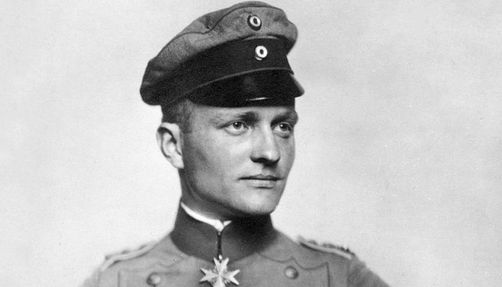Whether it’s salt tossed over the shoulder after the shaker is spilled or not walking under a ladder, most superstitions are pretty harmless. But sometimes superstitions cause Communist rebels to abandon their camp or a revered Navy admiral to refuse to sail.
Here are 6 stories of wartime decisions that hinged on superstition.
1. Rudolf Hess’s failed diplomatic mission to England happened after a series of dreams.

Rudolf Hess in his cell at Nuremberg, November 1945.
Photo Credit: WikipediaDeputy Führer Rudolf Hess was Hitler’s favorite sycophant right up until he flew himself to Britain on May 10, 1941 to negotiate peace as Germany invaded the Soviet Union. Historians argue back and forth about whether Hess did his mission under Hitler’s orders or on his own.
But two people were definitely consulted; an astrologer and a dreamer. The astrologer advised that May 10 was a good date to depart while a friend told Hess that he’d dreamed of his success on three different nights.
It turned out the dreams were wrong. The British captured Hess soon after he landed and kept him in prison for the rest of his life.
2. The feared Red Baron wouldn’t fly without his lucky scarf and jacket.

Just the appearance of the Red Baron, Baron Manfred Von Richthofen, could change the tide of an air battle.
Credited with 80 victories in the air, he was a formidable fighter pilot who wouldn’t enter the fray if he couldn’t find his lucky scarf and jacket. In spite of this, both the jacket and scarf were shot through, and the Baron was wounded by a bullet to the skull while wearing them.
Related: 22 World War 1 Movies That Take Viewers into the Trenches
3. American PSYOPS officers created vampires to vanquish communist rebels.
Lt. Col. Edward G. Lansdale was a U.S. Army psychological operations officer sent to help the Philippine government defeat communist rebels. Lansdale capitalized on a history of superstitions in the Philippines, specifically one that centered around the “asuang,” a shapeshifting vampire.
Lansdale and his men circulated a rumor that one was prowling the hills near the communist camps. Then, they waited for a patrol, snatched the last person in it, drained out all of his blood with two needles inserted in the neck, and left the body for the communists to find.
Rebels soon fled the area and the government forces took it for themselves.
4. Grant’s superstitions led to victory.

Grant at the Battle of Cold Harbor, June 1864.
Photo Credit: WikipediaLt. Gen. Ulysses S. Grant’s success in the Overland Campaign against Gen. Robert E. Lee led to the Siege of Petersburg from 1864 to 1865 and Lee’s eventual surrender in April 1865. Grant’s victory came despite the fact that he lost every battle in the campaign.
Related: Ulysses S. Grant: The Man Who Secured the Union’s Victory in the Civil War
How? By refusing to retreat or withdraw, decisions that some have been chalked up to Grant believing that a person shouldn’t retrace their own steps. Where previous forays into the area by other generals had ended with retreats, Grant was forced by his superstitions to lead his army any direction but back. This kept him and his men in the fight until they were finally able to outmaneuver Lee.
5. British magician Jasper Maskelyne may have created a massive scarecrow to scare Italian peasants.

Jasper Maskelyne and his magic act crew, 1950.
Photo Credit: WikipediaThe British magician Jasper Maskelyne offered his professional services to his nation when World War II broke out. As Maskelyne was known to exaggerate his actions in the war, tales surrounding him have to always be taken with a grain of salt.
Related: 9 Wartime Pocket Manuals That Put You in a Soldier's State of Mind
But his claims from the Allied invasion of Italy suggest that Maskelyne helped the Allies take over rural Italy by building a 12-foot tall scarecrow of fire and metal that convinced some superstitious Italians that the devil was fighting side-by-side with the British. The Italians locked themselves in their homes, leaving the British to continue north unmolested.
6. Adm. Halsey demanded his task force number and sailing date be changed because the number 13 is unlucky.

Task Force 16 in battle, 1942.
Photo Credit: WikipediaAdm. William Halsey Jr. was an ensign on the USS Missouri on April 13, 1904 when an accidental fire burned and suffocated 31 men to death. After that, he was very superstitious about the number 13.
So, when he was assigned commander of the new Task Force 13 that was set to sail on Friday, February 13, Halsey sent one of his officers to protest. The command relented and changed the task force designation to 16 while promising that an oiler would be late, delaying TF 16’s departure until February 14.
More from We Are the Mighty
- A sailor snuck ‘Remember Pearl Harbor’ onto Tojo’s dentures before his war crime trial
- New search for American WWI MIAs takes the field
- How the FBI busted the largest-ever espionage ring in the United States
- “The Battle of Brisbane” was a drunken WWII brawl between the US and Australia
This article originally appeared on We Are the Mighty.
